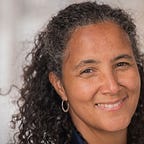Care Work & Economic Realities: How Money Drives the Decisions
Finances are everything in care work, even though we wish it wasn’t so.
Economic pressures are the driving factor in decisions around care.
If you work in the paid care sector, such as child care or home health care, it may be a poor financial choice to accept a job that pays lower than median salary, even if the work is exactly what you’d like to be doing and you’re highly skilled at it. A less interesting and less rewarding but higher paying position may be what you’ll have to take.
As the pandemic has shown, it’s getting harder and harder to find care workers — specifically because of the conditions (stressful) and the pay (very low, not even a livable wage). In the short term, it remains to be seen if the marketplace for care work will recalibrate to turn these critical jobs into what’s known in policy circles as ‘good-paying jobs’.
If you’re an unpaid caregiver, your role (chosen or obligatory) may impact your earning potential due to time constraints of your caregiving responsibilities.
The same market force that produces a shortage within the paid care workforce, results in family members and loved ones doing that same work without pay, and at the expense of their paid work.
So, the critical question — what does money have to do with care work decisions? It frames every decision.
Our homebound pandemic distance-learning-juggling parents know this, and our sandwich-generation workers have known this for decades. But do policy-makers and employers understand this?
Do decision-makers understand it enough to use this information to drive policy so that care workers, paid and unpaid, can have work and finances calibrated to the care roles they need to fulfill?
Follow @CareExchange for more on questions like these and thoughts on policies regarding the care economy.
This post was created with Typeshare
